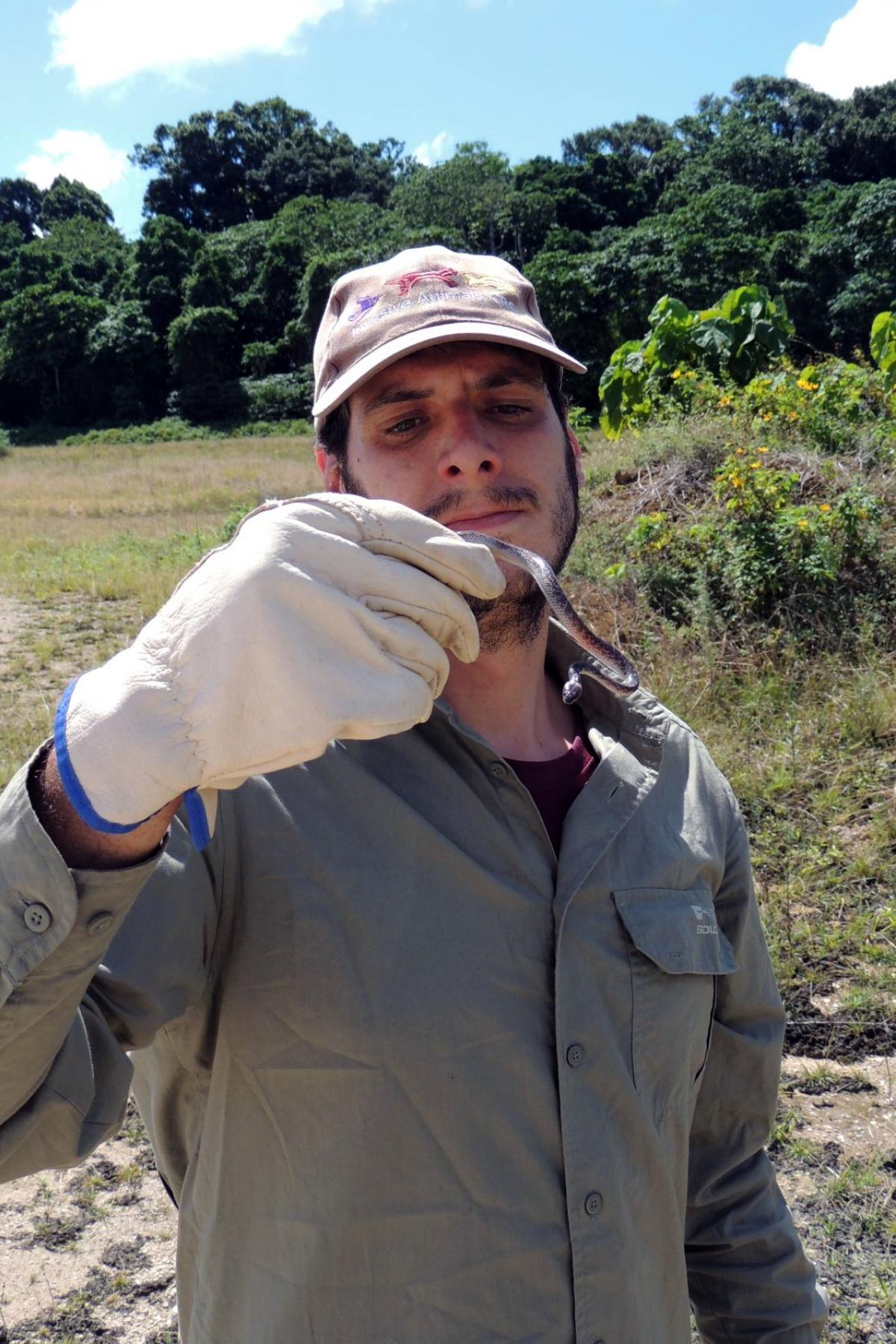Ecology and Evolutionary Biology
Exploring from the land, sea and sky.
Researchers in the School of Biological Sciences explore all angles of the Earth to solve questions in ecology and evolutionary biology.

Pablo García-Díaz handles an invasive wolf snake (Lycodon capucinus) in the rainforest of Christmas Island. Predation by invasive wolf snakes is believed to be a factor causing the decline of native species of reptiles on Christmas Island.
Our research strengths
Our scientists explore how flora and fauna respond to environmental challenges and climate change. We seek to understand the adaptive capacity and resilience of species, through the evolutionary history of animals, plants and humans.
DNA and forensic biology
We use ancient and modern DNA techniques to ‘travel through time’ to assess the impacts of past environmental change on populations and species, and this provides valuable genetic data for conservation and management of threatened species.
Our evolutionary biologists also apply expertise in forensic biology and new genomic techniques to analyse highly degraded human remains for the Australian Defence Force, Australian Police and humanitarian agencies.
Wildlife conservation
We implement analytical and applied techniques to study wildlife conservation and biosecurity risk management; monitor ecosystems with satellite imagery and use GIS and spatial simulation modelling to forecasts of biodiversity shifts to conserve natural systems.
Marine biology and aquatic research
Our research has a strong focus on current environmental issues that affect freshwater, estuarine and marine ecosystems, exploring climate and environmental change, ecosystem restoration solutions, sustainable marine and fisheries management, emerging contaminants and community engagement opportunities.
Our research collaborations
We are leaders in ecology and evolutionary science research. All of our research is buoyed by partnerships with industry and government; and strong collaborations across various research centres and institutes.
HDR opportunities
Expand your industry connections and skills with our PhD and Masters-level research degrees.
